Warning: Distressing images
Animal rights organisation Peta has alleged sheep are being mistreated on farms in New Zealand.
The non-profit has released an “expose” into New Zealand’s shearing practices, accusing farmers of whipping, tackling, cutting and abusing their animals.
However, Federated Farmers calls it a “disgraceful hit job by Peta” and says New Zealand farmers have “incredibly high animal welfare standards”.
In a summary of the investigation published on its website, Peta alleged animals sustained injuries and wounds, claimed shearers “hit sheep with various objects, including a ski pole” and said that “one worker slammed a sheep’s head against a hard wooden board three times”.
Videos published on its website and Facebook page appear to show a shearer with his boot on a sheep’s throat, and other animals bleeding from cuts sustained during shearing.
Photos also show dead sheep on different properties, some infested with flies.
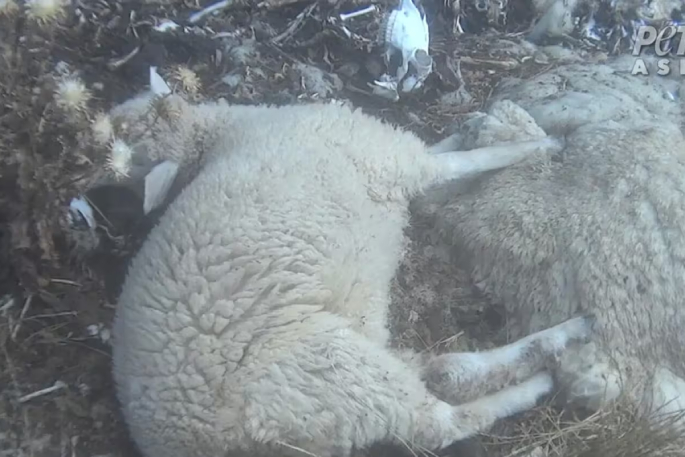
Peta investigators reported how they saw many dead sheep on farms, including some dumped in trash pits. Photo / Peta
Peta Asia-Pacific said in a statement it had “turned over the evidence to New Zealand officials and is urging them to investigate and file appropriate cruelty charges for apparent violations of the law, which include abusing and wounding sheep and causing them unreasonable pain”.
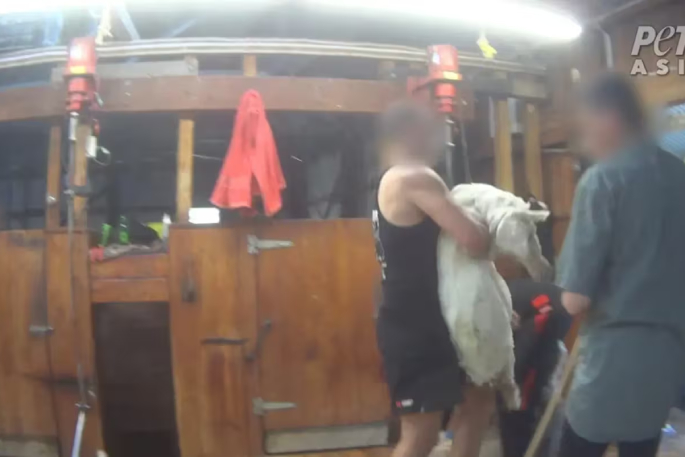
Peta says it found evidence of animal abuse inside the sheep farms. Photo / Peta
The Ministry for Primary Industries confirmed it had been contacted about the allegations.
“MPI has received a complaint and video clips alleging mistreatment of sheep by some shearers,” Peter Hyde, MPI manager of animal welfare and national animal identification and tracing compliance (South), told the Herald. “We note some of the allegations date back to 2023. MPI is investigating the complaints.”
Federated Farmers meat and wool chair Toby Williams told the Herald the footage couldn’t be further from what normal farming practices in New Zealand look like.
“In reality, what you’re seeing in that video is a montage showing some isolated examples of poor practice that most Kiwi farmers simply wouldn’t put up with in their shearing shed,” he said.
“New Zealand farmers have incredibly high animal welfare standards and we take the responsibility of caring for our animals very seriously.”
Williams said sheep are shorn for the animal’s health and wellbeing.
“We want to prevent issues like fly strike and heat stress over the summer months,” he said.
“If we didn’t shear our sheep they’d be pretty uncomfortable, at risk of overheating, and be really susceptible to parasites and disease.”
He accused Peta of attempting to push an “extreme anti-farming agenda”.
“Peta should hang their heads in shame for this disgusting attack on New Zealand sheep farmers who are the best in the world at what we do.”
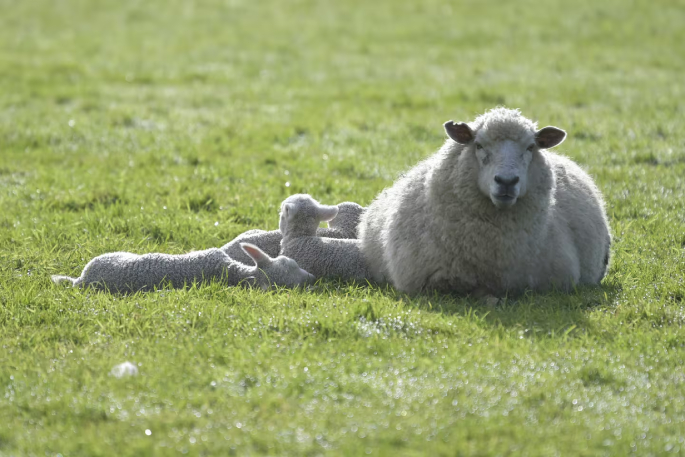
The Ministry for Primary Industries confirmed it is investigating allegations of mistreatment of sheep by some shearers. Photo / Liam Clayton
The Peta expose also claimed a South Island property owned by former NBC host Matt Lauer was the site of some of the incidents in its investigation, alleging shearers at the farm “stepped on a thrashing sheep’s neck, dragged sheep across the floor, sewed up a sheep’s bloody wound without any painkillers, and other atrocities”.
A representative for Lauer’s company Orange Lakes (NZ) told the Herald it had “no involvement with the farming operation” and the property is subleased to Hunter Valley Farming.
“The shearing is undertaken by independent shearing contractors engaged by Hunter Valley Farming,” the spokesperson said.
Lauer’s representative said they had alerted the Overseas Investment Office. “Orange Lakes and Mr Lauer take the allegations extremely seriously and have commenced their own investigations,” they said.
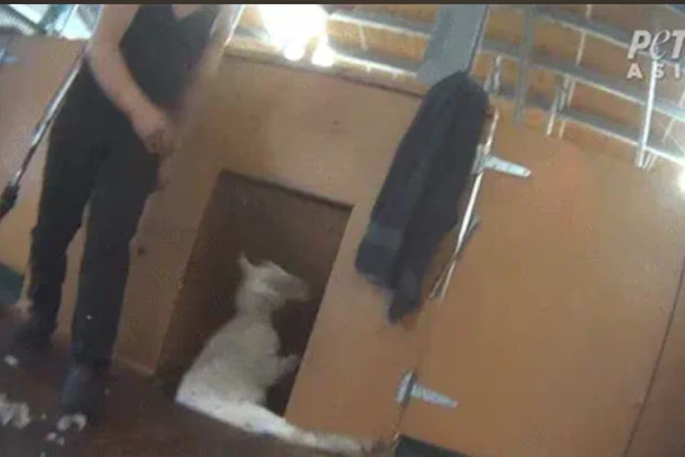
Shearers kicked, beat, and stomped on sheep and threw them down chutes, Peta said. Photo / Peta
Peta released its alleged findings on December 31, outlining what it said its investigators saw at 11 ZQ-wool-producing locations across New Zealand from 2023 to 2024.
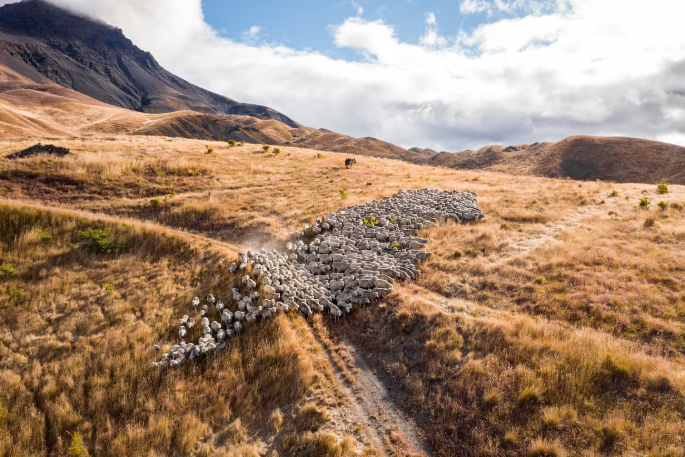
New Zealand had approximately 23.59 million sheep as of June 2024.
Mulesing – the removal of hind skin strips from sheep – is banned from ZQ Merino suppliers. The practice was outlawed in New Zealand in 2018.
New Zealand had approximately 23.59 million sheep as of June 2024 – around three million of which are merino – and the number has declined in recent years after peaking in the 1980s.
Merino wool is high-value, fine and soft with moisture-wicking and antibacterial properties, and New Zealand merino is used by apparel companies such as Icebreaker and Untouched World.
Barrister and award-winning shearer Jills Angus Burney is “not surprised” that Peta has targeted New Zealand sheep shearers because it earlier did a similar expose in Australia.
She believes the industry’s standards have improved drastically over recent decades and are higher than ever before.
“The merino industry is hugely watchful of ethical standards,” she told the Herald. “I can assure you, and you can assure your readers, that when we teach people to shear sheep, we teach people to shear so that they are handling the animals with care.”
Farmers were “really, really trying to do the best thing” and she thinks ZQ Merino is “absolutely ethical”.
Because of the nature of the shearing process, nicks do happen she said.
Angus Burney said merino sheep, which have three times as many capillaries as British breeds, bleed more – as visible in Peta’s footage.
She claimed the organisation’s approach was “cherry-picking” its findings. A minority of shearers could be “rough” or do a “bad job”, which was for shearing contractors to deal with.
She said the people who shot the footage shared by Peta should have reported what they saw immediately.
“They were in those wool sheds, they have a fiduciary duty to raise their concerns in the first instance with the owners of the stock,” she said. “Raised the footage and the complaints with the contractors, with the employers, with the gangs, with the team leaders, the shearing contractors and the relative farmers.”
She said there was no place for deliberate violence in the New Zealand wool industry.
“If you’re in the woolshed when that’s happening, you have an absolute duty to report it.”


0 comments
Leave a Comment
You must be logged in to make a comment.